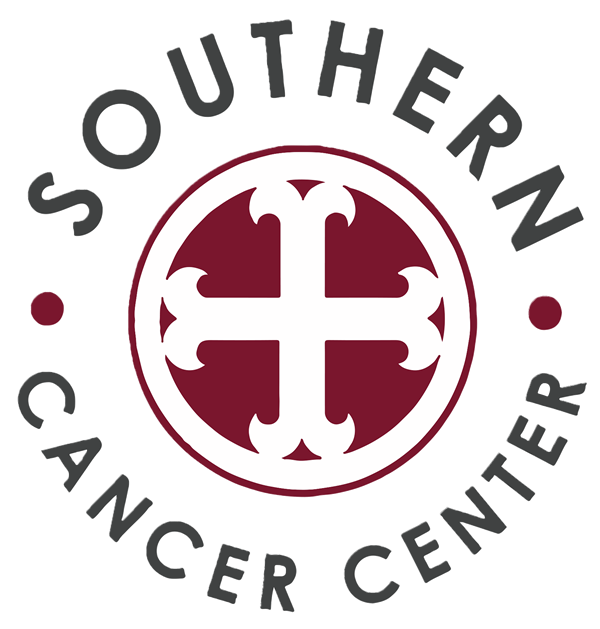If you’ve recently been diagnosed with early-stage breast cancer, your physician may recommend breast-conserving therapy as your treatment plan. Typically, this involves a breast-conserving surgery, which is usually followed by radiation therapy to treat any remaining cancer cells. Used as an alternative to mastectomy for patients with early breast cancer, patients given this breast-conserving therapy can usually keep most of their breast.
“When breast cancer is caught in an early stage or before it has spread, a breast-conserving approach may be appropriate for some patients,” said Dr. Lindsey Beakley, breast surgical oncologist at Southern Cancer Center. “Our practice works with the patient to determine the best plan for their cancer and their goals.”
Who is Breast-Conserving Therapy Appropriate For?
Breast-conserving therapy is an option for many patients with early-stage breast cancers. Studies show that women with localized breast cancer are equally likely to survive their cancer whether they are treated with BCT or a mastectomy. You may consider breast-conserving therapy if you:
- Have concerns about losing a breast
- Are able to have radiation therapy, and have not already had that breast treated with radiation therapy
- Have cancer in one area of the breast, or in multiple areas close enough to be removed together
- Have a tumor smaller than two inches—this may vary depending on the location of the tumor and the size of the breast
- Are not pregnant
- Do not have a gene mutation linked to breast cancer risk or a strong family history of breast cancer
What Can I Expect from Surgery?
If breast-conserving therapy is recommended as a part of your treatment plan, surgery is performed to remove the cancer while leaving as much of the breast as possible, though some surrounding tissue and lymph nodes may also be removed.
You may hear this surgery referred to as a lumpectomy, quadrantectomy, partial mastectomy, or segmental mastectomy. The type of surgery performed depends on how much of the breast is removed. To determine this, your surgeon will consider the size and location of the tumor and your breast size.
Surgery will usually be done in an outpatient surgery setting and usually does not require an overnight stay in the hospital. Before going home, ask your Southern Cancer Center team any questions you have about:
- How to care for the surgery site and any bandages or drains
- What to look out for in case of an infection
- How to shower while the surgery site is healing
- When you can start wearing a bra again
- Restrictions on physical activity
- Any questions about any medications or antibiotics you’ve been prescribed
Please contact your doctor if you have any concerns about the recovery process.
How Do I Know If All of the Cancer was Removed?
When breast cancer is removed, the surgeon also takes a small rim of normal tissue surrounding the tumor, which is called a margin. After surgery, a doctor will closely inspect the removed tissue to make sure the margin does not contain cancer cells. If there is a possibility of additional cancer cells in the surrounding areas of the breast, the surgeon may need to remove additional tissue. This procedure is called a re-excision. If cancer cells are still found in the removed tissue, a mastectomy may be needed.
Most patients will need radiation therapy to the breast following surgery. This treats the area where the cancer was removed and helps treat any cancer cells that could be present in the area. Small clips may be placed inside the breast during surgery to mark where the cancer was removed, so the radiation can be more precisely aimed at the correct area.
How is Cancer Recurrence Prevented?
Your physician may recommend hormone therapy following surgery for breast cancer. This is used in some patients with early-stage hormone-sensitive breast cancers to reduce the risk of breast cancer recurrence. For some patients, chemotherapy may be used after surgery.
If your physician recommends chemotherapy, any radiation or hormone therapy may be delayed until the chemotherapy is completed.
Can I Have Breast Reconstruction Surgery After Breast Cancer Treatment?
Before you begin treatment, talk to your breast surgeon about what changes you can expect in your breast after surgery. Breast reconstruction surgery can be done to rebuild the shape and look of the breast. If you are considering breast reconstruction surgery, be sure to speak to your surgical team about your options before your breast-conserving surgery. Reconstructive surgery can sometimes be done at the same time as your breast cancer surgery, or it can be done later. Your breast surgeon will be able to connect you with a plastic surgeon who can explain your options.
If you are considering breast reconstruction surgery, be sure to ask your doctor:
- Will reconstruction interfere with chemotherapy, radiation therapy, or any other treatment you may have?
- Is reconstruction surgery recommended during the initial breast cancer surgery, or should you wait?
- What are the types of reconstruction surgery available to you?
- How long will it take to recover?
- What kind of changes can you expect to the breast over time?
- Should you consider surgery on both breasts to help them look alike?
You may also ask your physician for photos of typical results, or if they can connect you to other patients who have had the same surgery.
Call Southern Cancer Center for Information on Breast Cancer Treatment
Dr. Lindsey Beakley and her breast cancer team at Southern Cancer Center work with you to create the optimal treatment plan for your breast cancer. For more information about breast-conserving therapy or other treatment options, please call 251-633-0663 or visit www.southerncancercenter.com/breast-surgery.
